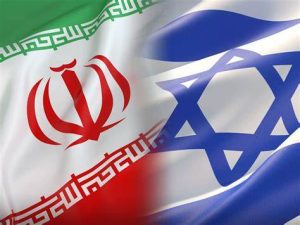After more than a year since the outbreak of war in Sudan on April 15th of last year, the country has become on the brink of complete collapse. Its very existence and current status are threatened with extinction. The war has destroyed everything. Sudanese people have faced unprecedented levels of violence, forced displacement, and killing, in a nation where the sounds of gunfire have rarely ceased.
The war has left a trail of destruction, with archaeological museums razed, the National Archives incinerated, and thousands of hospitals, factories, and farms rendered inoperable. Schools have closed their doors, robbing an entire generation of students of their future.
The humanitarian crisis in Sudan continues to deepen, with over 10 million people internally displaced and 2 million seeking refuge abroad. Millions of children are facing starvation, and the United Nations (UN) has issued a dire warning about the looming threat of famine.
Neither party in the conflict shows any willingness to end the war. The Rapid Support Forces (RSF) continue to perpetrate horrific atrocities against unarmed civilians, such as the ethnic cleansing of over 5,000 Masalit in Geneina and the massacre of 200 in Wad al-Nura. Despite US and Saudi mediation, the RSF is flagrantly violating the Jeddah agreements.
Meanwhile, the military leadership continues to bet on a military solution to decisively defeat the RSF. They have remained committed to the Jeddah platform and the implementation of its previous outcomes, including the imperative of the RSF’s withdrawal from all civilian homes and properties. They see this as a prerequisite for their engagement in any new negotiations. However, this seems increasingly difficult as the conflict has evolved into a proxy war, and the RSF continues to receive an open flow of weapons and support from numerous countries and entities. Despite the United States’ call for new negotiations in Geneva in mid-August, the fate of the Jeddah platform—agreed upon by both warring parties and the international community—remains unclear. Furthermore, the military’s inability to achieve a decisive military victory, which they have consistently asserted for over a year, is becoming evident.
The war in Sudan has become increasingly complex and is veering towards a situation beyond the control of both parties. Burhan and the military commanders, on one side, and Hemedti and the RSF leaders, on the other, are the current stars of this war. However, with its rapid developments, the war will give rise to new stars and leaders from armed militias in a fragmentation that is difficult to predict. Sudan will transform into enclaves governed by warlords and extremists, becoming an attractive arena for terrorism and its breeding ground, thus forever obscuring the country’s identity and spreading its embers to neighboring countries, threatening regional peace and security.
Practically, there is an urgent need to reset the situation, based on the demands of the Sudanese people as expressed in the December Revolution. These demands include aspirations for freedom, peace, justice, and democratic civilian rule. By elevating these agendas and the values of the people, we can begin by making both parties understand that the first step to stopping the war is addressing the root cause that led to its outbreak: the existence of two armies and competing leaders vying for power.
The Rapid Support Forces must be convinced that their existence is only viable within a framework of security arrangements, integrating them fully into a single army that is entirely subordinate to civilian authority. This civilian authority should pave the way for reforms that restore order through an electoral and constitutional process owned and decided upon by the people.
As for the army and its leadership, they are required to comprehend the reality of the revolution and change, and to acknowledge that the war of April 15th revealed the importance of reforming the military itself. This is a matter that cannot be achieved by ignoring the demands and aspirations of the people for democratic transition. The most urgent task is to work on convincing the army’s leadership of the military’s interest in security and military reform under civilian rule. This is a race against time and opportunity, and it requires presenting the incentives that Sudan will reap as a result of these reforms, guided by the cessation of war and reconstruction.
These are crucial issues that any mediator or party seeking to cease the war and assist the Sudanese people should prioritize as an urgent necessity to stop the war and succeed in efforts to bring peace to Sudan.




